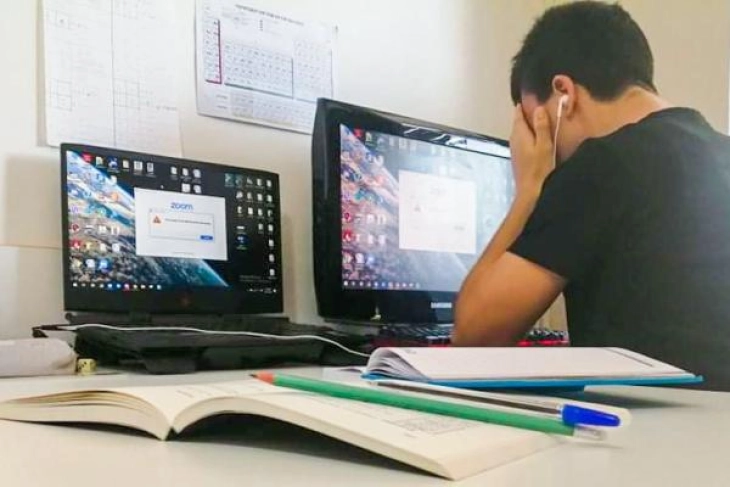Megjashi: Children want to return to school due to COVID loneliness

Skopje, 17 August 2021 (MIA) - A large percentage of children have felt isolated and lonely during the Covid-19 pandemic. They miss socialization at school. 5% of students were completely excluded from online classes because they couldn’t attend them, one in three children share a computer with someone else in the family, which disrupts the quality of distance learning. 48% of children have their own technological devices, said Dragi Zmijanac of Megjashi presenting findings of a recent research, which included 1,231 children aged 10-18 across the country about the experience of online classes during the pandemic.
“In cooperation with Lycamobile, we handed out 2,000 prepaid cards in order to help the children from vulnerable categories access the internet, and Masit helped us hand out over 50 laptops to children in socially vulnerable families. It’s concerning that the children feel lonely and isolated, 68% said they feel less connected to their friends, 65% said they miss school, not purely for the educational value, but for the opportunity to make friends. It’s also concerning that the children lack freedom,” Zmijanac said Tuesday.
The research had the children imagine they’re writing a letter to the Ministry of Education. In these letters, the children asked why bars are open, but schools aren’t. Some children asked to go back to school, not study from digital textbooks and to study less, and to focus on the things they will really need in life.
University professor Sofija Arnaudova said that online classes have had a negative impact on the children’s mental health.
“1 in 10 children have significant anxiety, data show. One in seven children (15%) is facing significant levels of PTSD symptoms. More than half the children have issues concentrating, they’re anxious when a stressful event is mentioned, especially when it’s related to family members that passed away due to Covid-19. There are 84 children whose families have had someone contract Covid-19,” professor Arnaudova said.
The research also showed that children, especially older children, fall victim to cyber bullying.
37% of elementary schoolers and 66% of high schoolers have suffered digital harassment.
“Some children are bullied due to their homes, which are visible during online classes, and the devices they use in online classes. Some children were bullied when they were excluded from Viber groups,” the professor stated.
In terms of digital textbooks, she said that the children have named lots of downsides to studying from digital textbooks, namely because they’d be tied down to the computer at all times, and they can’t isolate themselves to another room to study, like they can with regular textbooks. The students listed environmental protection and saving paper as benefits from digital textbooks. dk/ba/







